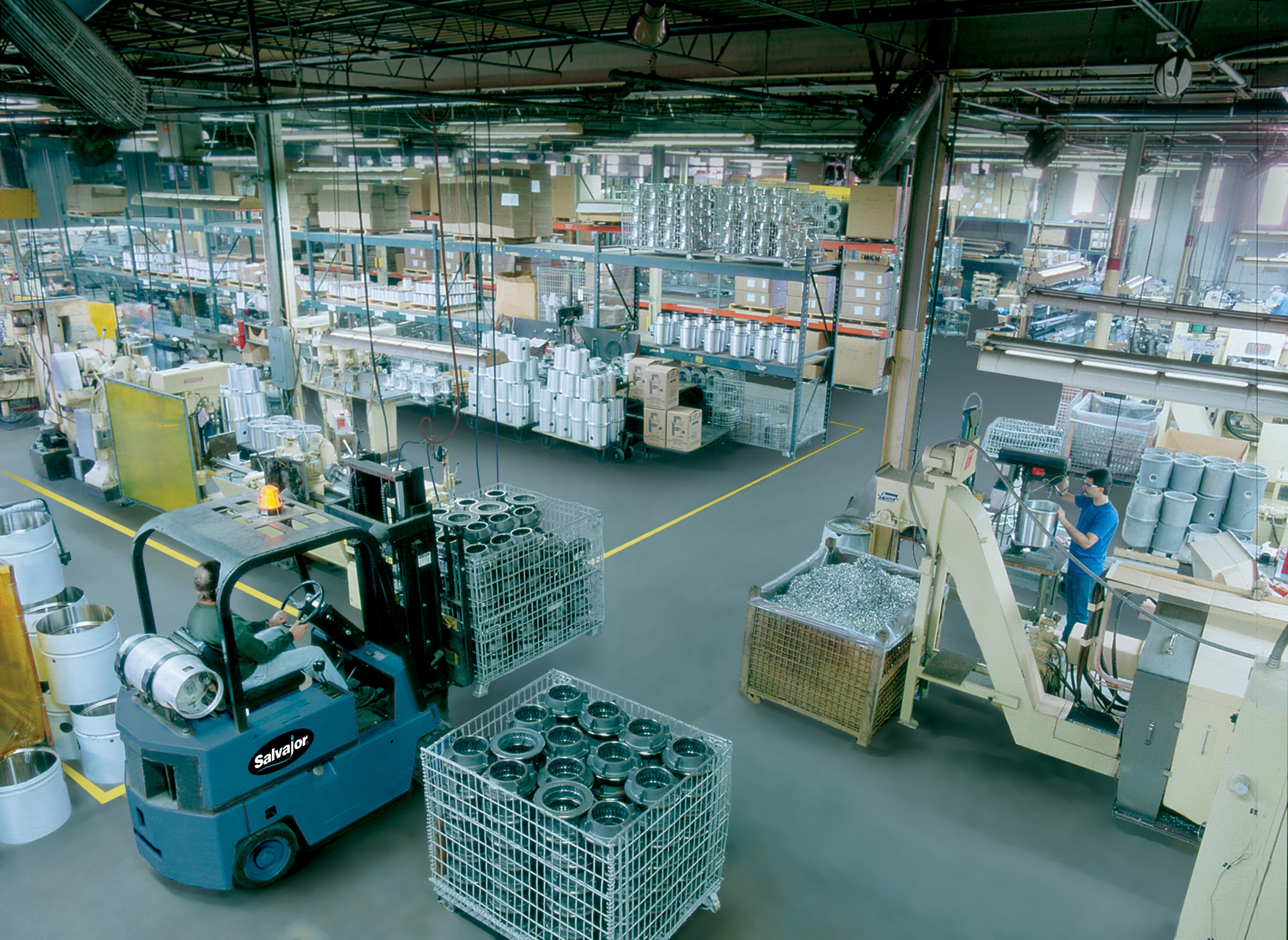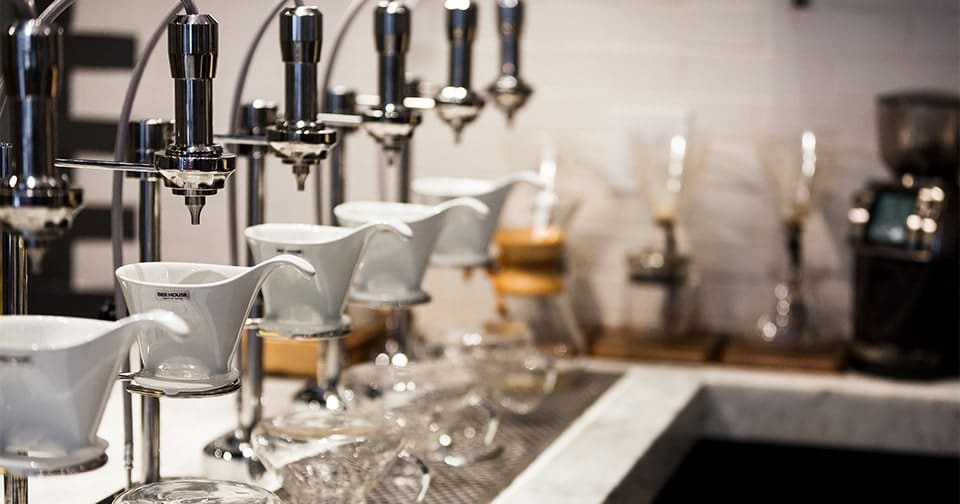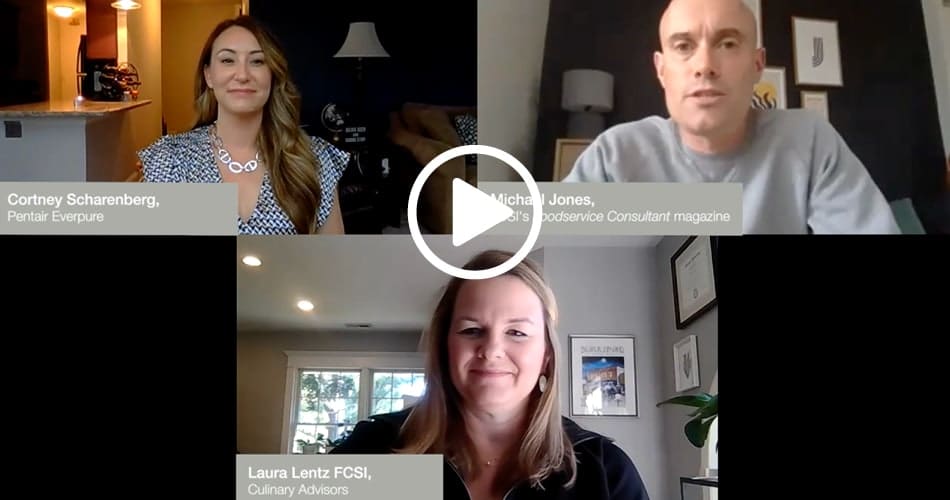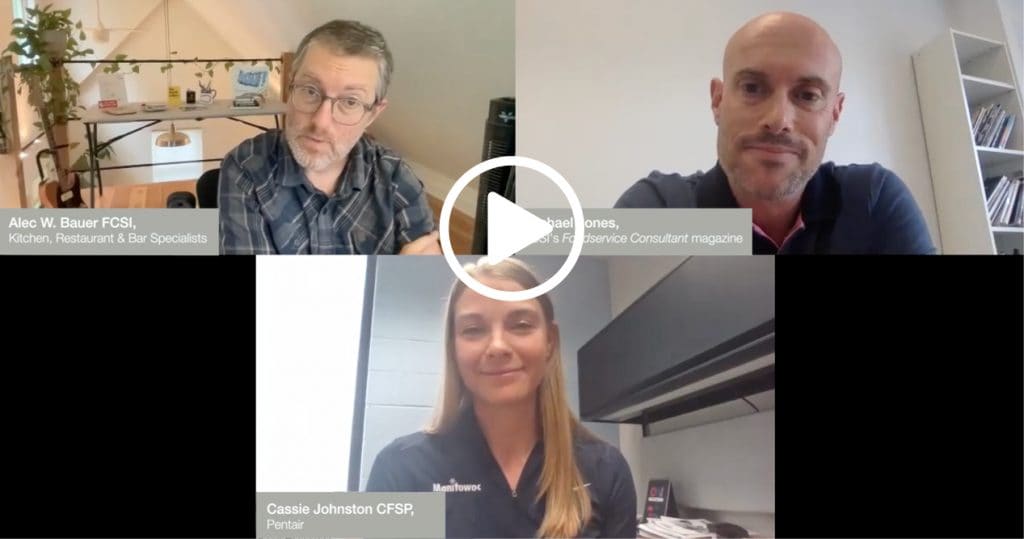
Arnold Hernandez, general manager of The Salvajor Co kicks off the story of this now 76-year-old, third-generation, American company with the words: “The world was at war.”
Manufacturer of one of the first waste scrapping systems in the US, Salvajor’s founder George Hohl first started selling his then cast iron creation to restaurants and hotels in 1944 as a way to help them save money by reclaiming accidentally discarded silverware and other non-soluble items, even jewelry, that would otherwise literally go down the drain.
An ensuing contract for 600 units with the government at the time helped propel his business forward. The name Salvajor, as the company’s website tells us, was partially, coined from the word SALVAge – in that “one of the main benefits of the company’s original product was saving silverware from being lost during the process of scrapping and pre-flushing soiled tableware”.
Today, the same hand-crafted collector is still manufactured in downtown Kansas City, Missouri, along with disposers and more advanced systems introduced over the years.
Salvajor’s 100%, commercial-only line of products can still be found in the nation’s leading restaurants and hotels as well as in hospitals, cafeterias, schools factories, sports arenas, catering facilities, universities and correctional institutions across the country.
It was in the 1960s that the manufacturer switched to using stainless steel for the products, and in the 1970s when disposers were introduced. Most recently, the company launched a line of smart controls.
Born in the USA
A truly American-made story, Hernandez points to craftsmanship as the core of the company brand. “We are not in the commodity business,” says Hernandez, who joined Salvajor in February 2016 after years with a large-scale packaging company in New York.
“We are a small business with the professionalism and production capability of a large corporation, but without the bureaucracy,” he says. Salvajor has a self-reliant, self-sufficient manufacturing process that sets us apart from many competitors in the industry. Our strategy is to maintain this autonomous structure as it has proven to be very successful along with our many skilled and talented employees.”
“There is not too much that we cannot make within our four walls. Salvajor has forming presses, stainless steel punching and CNC equipment, welding, and assembly departments. It’s a rare company that still takes pride in craftsmanship and in getting things ‘right the first time.’”
What also sets Salvajor apart is its family history. Current president Chris Hohl took over the company from his father, George Hohl, Jr, who passed in 2011. He, in turn, had taken over from his father and founder George Hohl (senior), in the 1970s. Chris Hohl’s brothers Matt and Gregg Hohl also work for the company in leadership positions.
“I am very fortunate to be surrounded by tremendous staff,” says Hernandez, noting that many of Salvajor’s employees have worked for the company for decades, even starting as young as 16. “For many years I have had the opportunity to work for large corporations and the two-way street of loyalty is often missing. At Salvajor this is a main part on how business is conducted daily.”
Innovation and green standards
Innovation is key focus at Salvajor. “We are continuously improving our products by implementing green standards and ease of operation, but we also feel that operations innovation is equally important,” says Hernandez.
Over the past five years, the company has implemented new production reporting and tracking systems, and these new methodologies were instrumental in achieving zero lead times for customers. “We have also streamlined the data within our corporate database which provides information and metrics to analyze our business and the industry.”
Having partnered with LEED professionals, Salvajor products are specifically designed to save water and energy by using a recirculating system, and to provide a low maintenance, sanitary alternative to other methods of food waste disposal.
Just two years ago, Salvajor launched a new line of smart controls intended to take its water and energy-saving goals even further. Spearheaded by Tim Dike, engineering manager, who has been with the company for 36 years and calls Salvajor his “second family,” the team was able to patent new technologies that can detect when an operator is away from the machines in order to stop or reduce water flow and power. The controls can be retroactively added to existing products.
“Saving energy continues to be a big concern for most,” says Dike. “All too often, the disposal systems get pushed to the wayside and people don’t give it much serious thought, but we do, and we see it more than just grinding garbage and sending it down the drain. We’re focused on doing that as smartly as possible.”
The new controls also feature optional time and water limits that will automatically reduce flow or shut off the machine based to maintain minimal water and energy use during non-peak periods. “This panel is also a little smarter than past ones because it constantly samples the condition of the machine without the need for constant calibration,” Dike says, adding that his team is “not done yet” in terms of the engineering capabilities of controls for the future.
Outside of the smart controls, Dike’s team has focused mostly on quality improvements to existing products that already work well. “We totally enclosed all of our motors to create a safer kitchen environment,” he says. In addition, other basic components have been fine tuned to improve horse power with less stress on the machines while enhancing their efficiency.
Guiding philosophy
From a leadership perspective, Salvajor’s main company philosophy, Hernandez is keen to emphasize, is to take care of the team first, so they can take good care of customers – kind of like when a flight attendant tells you to put your mask on first in an emergency before helping others. “We follow an ‘integrity first’ philosophy. There are no short cuts; we follow safety, accounting and other protocols to a ‘T’. We feel that in following the smallest of rules and policies, following the bigger more important ones will come easier, which will have a big impact on quality and ensure success of our bushiness,” says Hernandez.
Number two on the list of company priorities is “excellence in all that we do.” That goes back to the craftsmanship discussed earlier. And number three is “treat people with dignity and respect. We try really hard not to focus on the negative, I think it only gets in the way of doing what’s good and productive.” Hernandez has a recent example of that: when the Covid-19 pandemic hit, company executives closed down the plant and offices, giving the team a month’s worth of paid time off to ensure everyone’s safety, even though Salvajor was deemed an essential place of business and allowed to remain open.
Upon returning, Hernandez says the company has implemented “many safeguards, such as masks and social distance mandates, to ensure that we continue to serve our clients fully during this time of uncertainty and as a result have further solidified our place in the industry as reliable resource for our venders and customers.” Again, it’s all about treating the team well so they can treat others just as well, or better.
Salvajor’s primary customer channels flow through buying groups and consultants, so it’s no wonder they maintain solid relationships with both. “I believe that the more we can educate consultants on our products and our sustainability efforts the more we can grow together,” says Hernandez, who notes that the company has a long history of inviting consultants to visit the plant for training and networking. The sales team also regularly travels (or used to, prior to the pandemic) to consultants and other industry partners to conduct on-site training around the country.
Hernandez says he hopes to bring back some of those visits with consultants and others, especially after they move into a brand-new facility – a transition that’s been two years in the making. The company was able to score prime real estate in the Kansas City area at three times the size of the current building they’ve occupied for decades. “This will be a ‘state-of-the-art’ facility with demo rooms and labs and will accommodate larger groups for sales, training, and demonstration purposes. We are also very excited about creating a larger research and development space, which is needed to continue to provide the industry with our latest innovations and products.”
Of course, the scenarios of Covid-19, potential vaccines and changing regulations around gatherings will dictate what those training sessions will look like. The long-term view, Hernandez says, is to use this new facility to secure the business for future generations, adding: “The same commitment to quality and service that made this company special is what will continue to drive its success.
Amelia Levin




